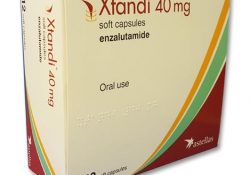On March 4, 2016, KEI provided comments to the US Senate Committee on Finance on a report prepared by staff for Senators Grassley and Wyden that was issued by the committee on December 2015, titled “The Price of Sovaldi and Its Impact on the U.S. Health Care System.” Senators Grassley and Wyden asked the public to comment on various issues raised in the report. The comments we filed on March 4 included three major sections.
Continue Reading →
(More on Colombia here: /colombia)
Andrea Carolina Reyes Rojas informs us that a committee appointed to consider a request for a compulsory license on the leukemia drug Imatinib has decided that there are public interest reasons to do so.
A copy of the decision is available here. Andrew Goldman shares some thoughts and context here.
Continue Reading →
(An expanded, edited and better version of this is available in our March 4, 2016 reply comment to USTR, available here: https://www.keionline.org/node/2440)
These were my notes from my testimony for KEI at today’s USTR Special 301 hearing
Big market puts countries on the #special301 watch list
Continue Reading →
Other KEI comments on NIH licenses are found here: /nih-licenses
February 22, 2016
Patrick McCue, Ph.D.
Senior Licensing and Patenting Manager
Technology Advancement Office
The National Institutes of Diabetes and Digestive and Kidney Diseases
12A South Drive
Bethesda, MD 20892
via email: patrick.mccue@nih.gov
Dear Dr. McCue:
Continue Reading →
I am in a meeting of the Equitable Access Initiative (EAI), which is considering new ways of measuring development and/or health needs, in the context of the priority setting by donors. I am a member of the Expert Panel, and this was my intervention in the morning session:
The presentations by John McArthur and Dominik Zotti were excellent, and the work of the four expert groups is a very useful contribution for those struggling with the challenge of setting priorities for aid.
Continue Reading →
CONTACT: Zack Struver
zack.struver@keionline.org
+1 (202) 332-2670
Obama Administration Recommends Senate Ratify Marrakesh Treaty for the Blind; Implementation Language Would Seriously Limit Exports
Continue Reading →
On February 8, 2016, the National Institutes of Health (NIH) responded to Knowledge Ecology International (KEI) and the Union for Affordable Cancer Treatment’s (UACT) letter requesting that the federal government exercise its authority under the Bayh-Dole Act to break patents on an expensive prostate cancer drug.
Continue Reading →
For more information on the 2021-2022 Xtandi request please visit: https://www.keionline.org/xtandi2021 (More on government funded inventions here.) On January 14, 2016, Knowledge Ecology International (KEI) and the Union for Affordable Cancer Treatment (UACT) submitted a request to the National Institutes… Continue Reading →
Today Knowledge Ecology International and the Union for Affordable Cancer Treatment (UACT) petitioned the Department of Health and Human Services, the Department of Defense, and the National Institutes of Health, asking that they exercise either their royalty-free, non-exclusive license or federal “march-in” rights to end the monopoly on an expensive prostate cancer drug, enzalutamide, marketed as Xtandi by Astellas, a Japanese pharmaceutical company.
Xtandi was invented at UCLA on federal grants from the NIH and DoD.
Continue Reading →

